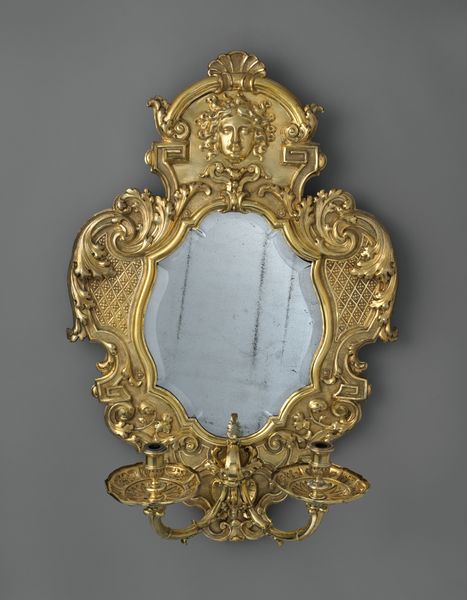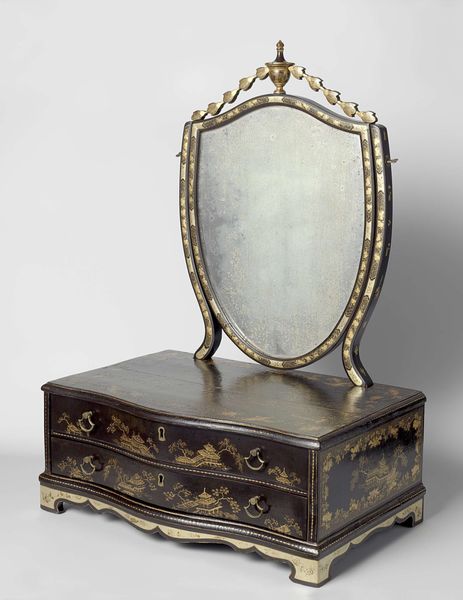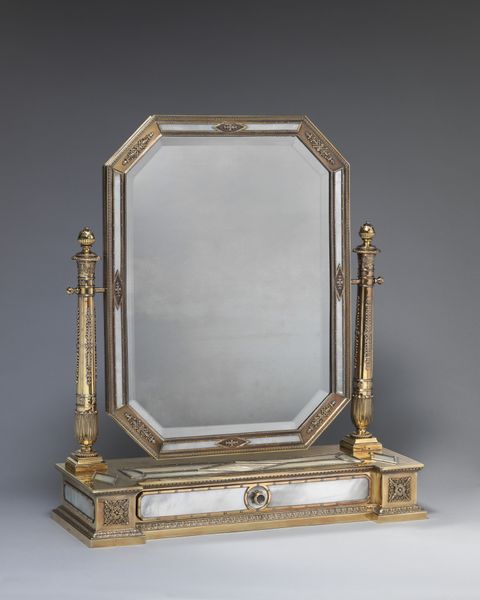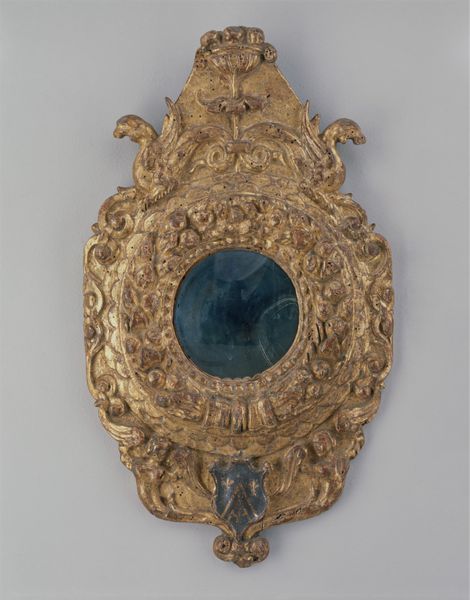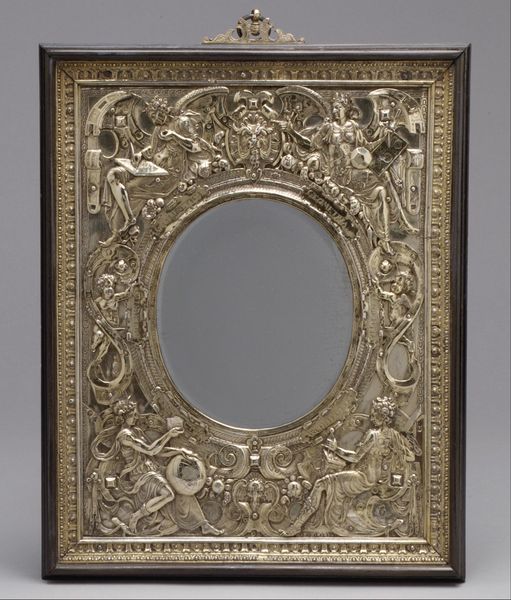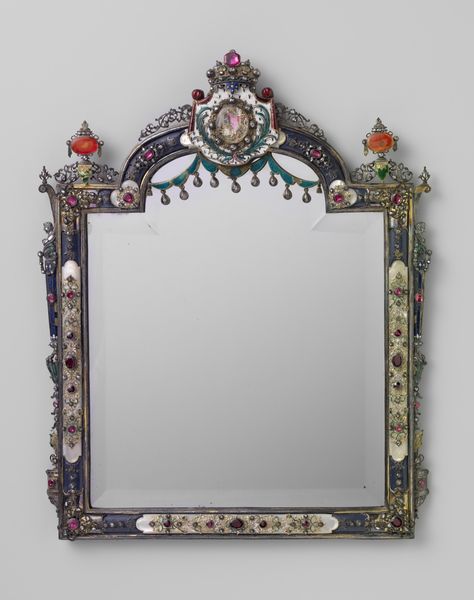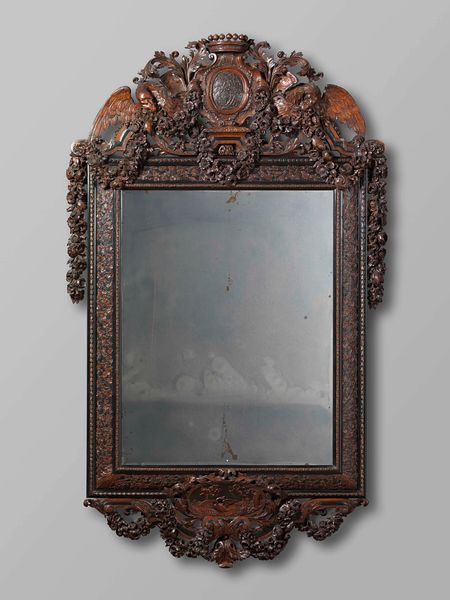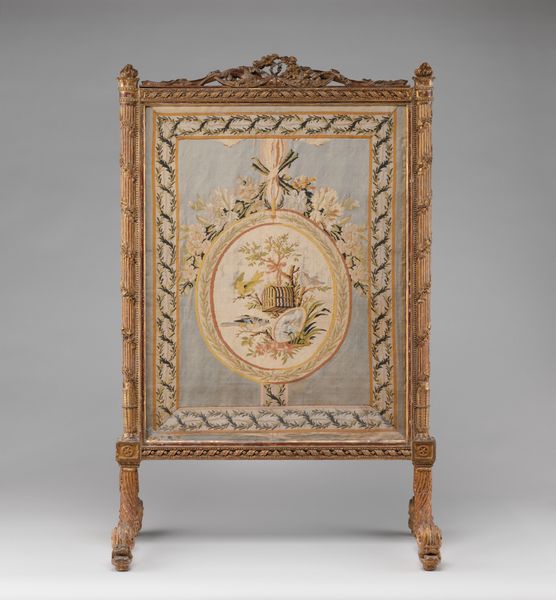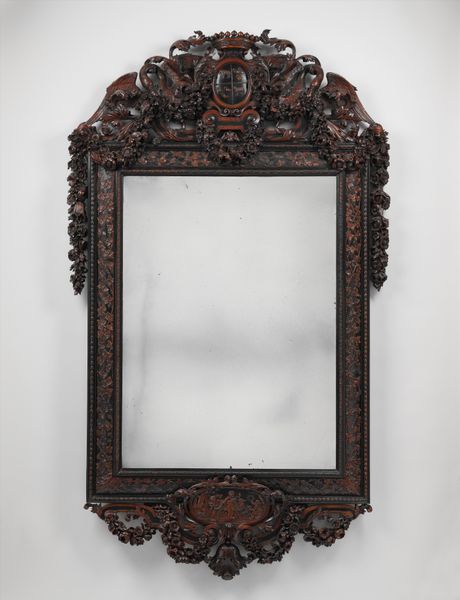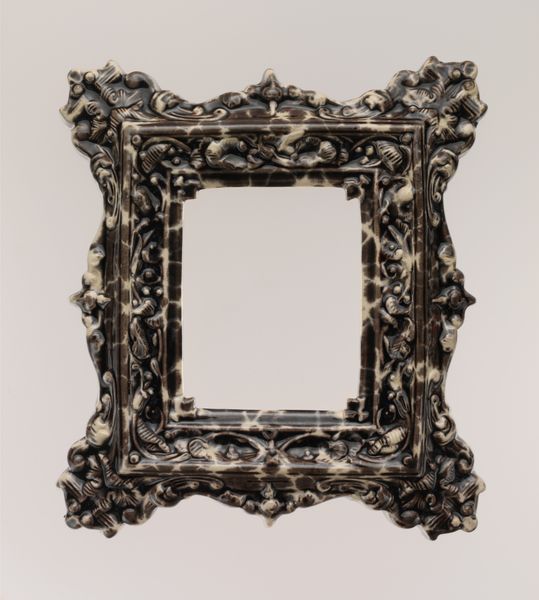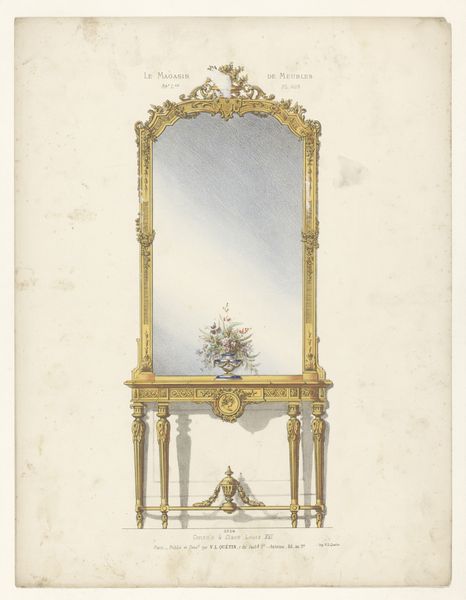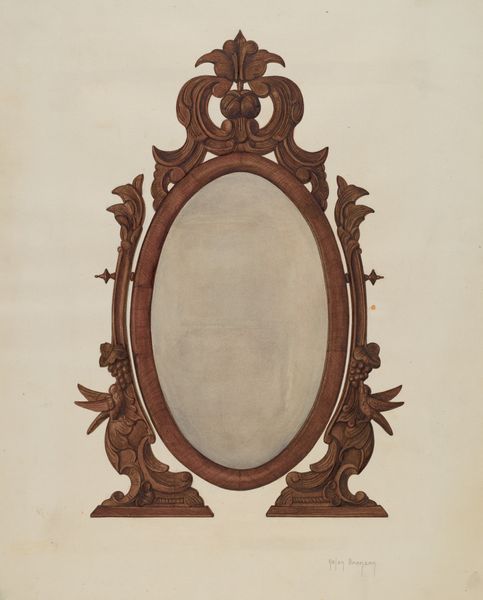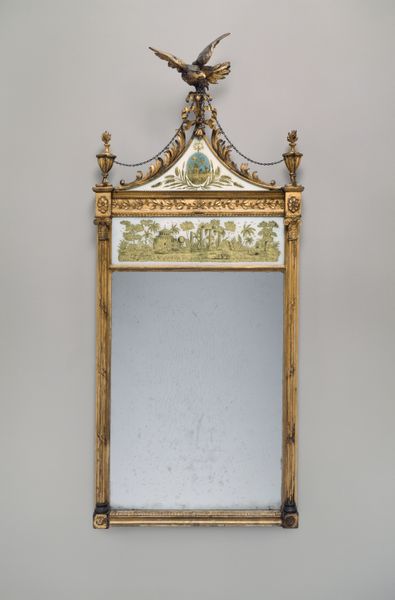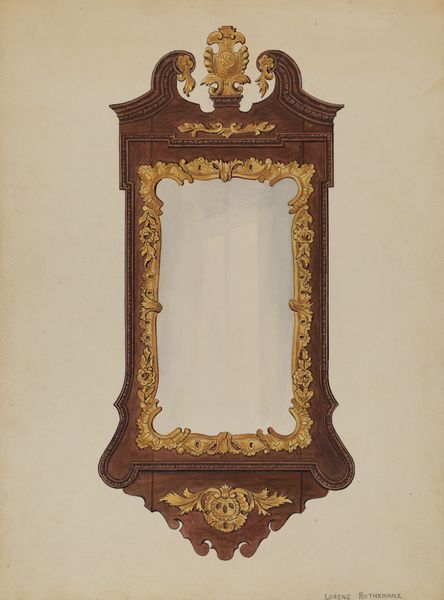
carving, sculpture, wood
#
carving
#
sculpture
#
geometric
#
sculpture
#
wood
#
decorative-art
#
decorative art
#
rococo
Dimensions: 58 x 42 1/2 in. (147.3 x 108 cm)
Copyright: Public Domain
Editor: So this is "Fire screen," crafted between 1731 and 1745, by Ferdinand Hundt. It’s made of wood, with some incredible carving. There’s a kind of theatrical grandeur to it, almost like a miniature stage. What catches your eye? Curator: It’s fascinating how objects like these become repositories for cultural anxieties and aspirations. Notice the Rococo style; it's a deliberate move away from the rigidity of previous eras. Those asymmetrical curves, the whimsical figures – griffins, a mask representing a classical god perhaps – they represent a longing for pleasure and escape. Editor: Escape from what, exactly? Curator: The Enlightenment! Rococo was embraced by elites who saw the rational world being proposed as soulless and too controlled. They wanted to emphasize emotions, love, nature; they looked to pleasure as its own good, whereas earlier eras needed to imbue daily life with strict religious or political meaning. Editor: That makes a lot of sense! So, a fire screen wasn’t *just* a functional item? Curator: No, this wasn't mere utility; it was a declaration. A signifier of wealth and status, certainly. But also an embrace of a specific cultural memory. Every curve, every flourish speaks to a conscious choice to evoke joy and lightness, and signal distance from the political turmoil of the time, from a certain kind of heaviness. What do you take away from that textile inside the frame? Editor: Hmm… the textile hints at a scene or pattern repeated within its weave, but the tone is too faded for a detailed analysis. I suppose everything signifies *something*. It's interesting to think of ordinary objects as intentionally carrying a whole worldview, I hadn't quite put it together like that. Curator: Indeed, and thinking this way enriches not just *art* history, but our understanding of how things carry meaning today as well.
Comments
No comments
Be the first to comment and join the conversation on the ultimate creative platform.
